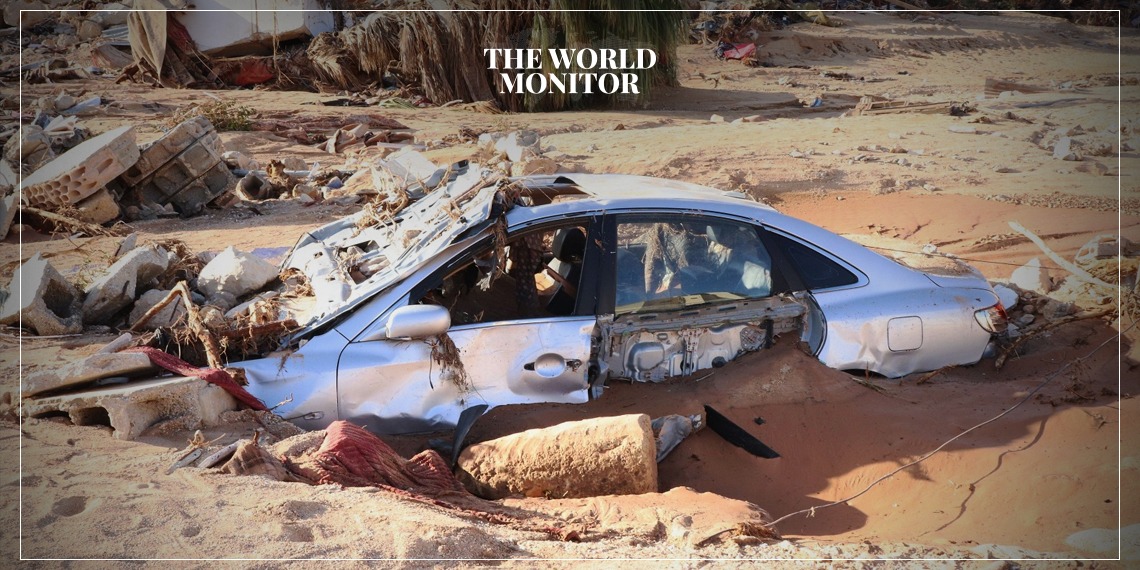In a special interview with “Sky News Arabia”, Dr. Ahmed Al-Monzari, the Regional Director for the World Health Organization (WHO) for the Eastern Mediterranean, revealed details about the health and humanitarian conditions in the areas affected by the storm “Daniel”. Libya experienced this calamity in the past few days.
Humanitarian Crisis Underway
According to Dr. Al-Monzari, Libya is enduring an unprecedented humanitarian crisis due to storm “Daniel”. This storm has brought about the worst floods the nation has seen in the last century, affecting between 1.5 to 1.8 million people in the eastern region.
The Mayor of Derna, an eastern city in Libya, confirmed to “Sky News Arabia” that the death toll from these floods might exceed 20,000.
Adding to this context, Dr. Al-Monzari emphasized that “all flood victims urgently need basic healthcare services, life-saving interventions, and they are at an increasing risk of waterborne diseases, among other illnesses that spread in such conditions.”
Meanwhile, as the city grapples with the disaster, relief teams have been preparing mass graves for the bodies retrieved from Derna, after the city faced extensive destruction.
Distressing Indicators
The WHO’s Regional Director for the Eastern Mediterranean shared some critical data points about the catastrophe in Derna:
• Reported figures indicate that 3,400 people had died by Tuesday, but the death toll is likely to reach 15,000.
• Given the rising numbers, response teams urgently require body bags, as well as essential supplies for survivors.
• The number of missing individuals surged from around 5,000 to 9,000 by Tuesday.
• The floods have damaged infrastructure, public facilities, disrupted road connections between regions, and led to power and communication outages.
• Accessing affected areas has become challenging due to blocked roads and areas completely submerged in water.
• Several hospitals have been flooded, ceasing their operations either partially or entirely, necessitating the evacuation of patients.
• Overall, the health implications are vast, but the entire scenario is still unfolding. An in-depth assessment of the health situation in the affected areas is crucial.
• The WHO, in collaboration with Libya’s Ministry of Health and the National Center for Disease Control, is enhancing risk communication activities and engaging local communities during and post-floods.
• The organization remains fully prepared to support disaster response and maintains close communication with the WHO’s country office in Libya and the Ministry of Health. They are working to determine urgent needs and provide health response in the affected regions, especially since the current disastrous situation demands the concerted efforts of the donor community and all partners.






